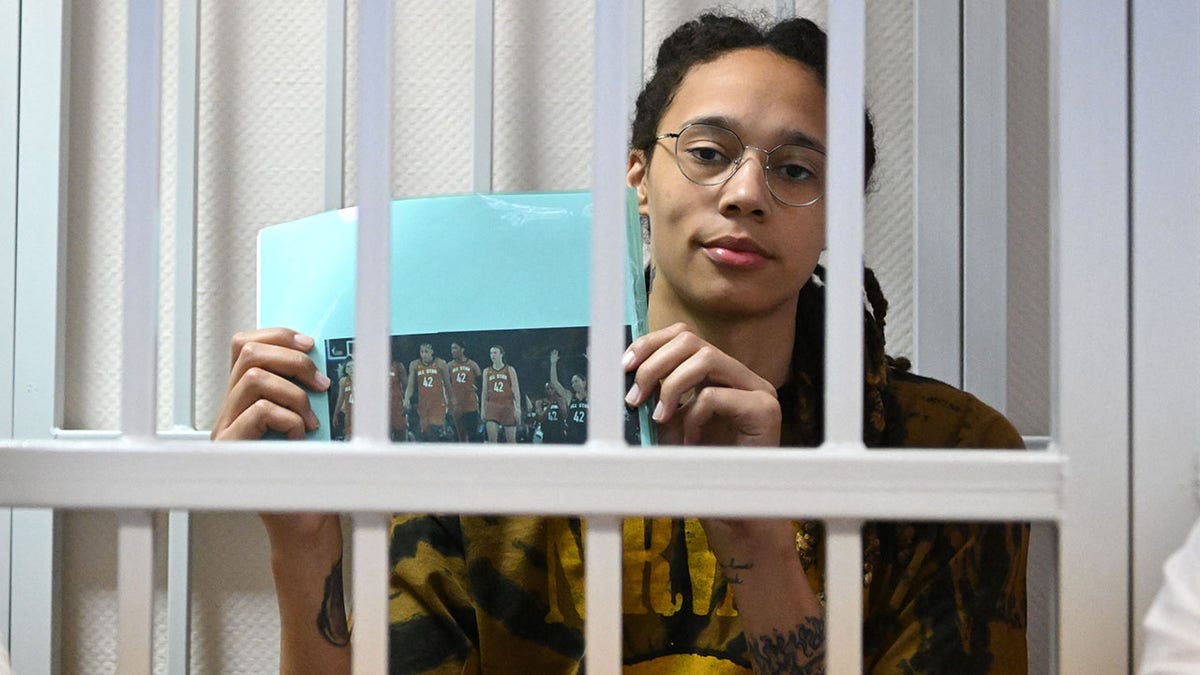President Biden will sign an executive order Tuesday that will authorize the U.S. to impose sanctions on foreign nations that wrongfully detain Americans while providing greater transparency to the families of hostages, including intelligence sharing, in an effort to bring Americans home.
In conjunction with the new executive order, the State Department will update its travel advisory risk indicator to include a "D" for wrongful detention abroad, in an effort to inform Americans and highlight the countries where there is an "elevated risk" of wrongful detention.
Senior administration officials said that the State Department on Tuesday will slap a "D" indicator on China, Iran, Russia, Burma, North Korea and Venezuela.
A senior administration official said the president’s executive order, "Bolstering Efforts to Bring Hostages and Wrongfully Detained United States Nationals Home," will help to expand the "tool kit to help bring American hostages and wrongful detainees home."
"Foreign states that engage in wrongful detention threaten the integrity of the international political system, and moreover, the safety of U.S. nationals and others abroad," the official said, stressing the U.S. government’s "unwavering commitment to bringing home Americans held hostage and wrongfully detained."
The official said that the executive order will also allow the U.S. government to "impose costs the culprits and provide greater transparency."

WNBA basketball superstar Brittney Griner sits inside a defendants' cage during a hearing at the Khimki Court in the town of Khimki, outside Moscow, on July 15, 2022. (Natalia Kolesnikova/AFP via Getty Images)
The costs, according to the official, include financial sanctions, visa bans and more. The sanctions can be imposed on the perpetrator whether the individual is a terrorist, or a state actor, the official explained.
"We use sanctions authority with the primary focus to secure a loved one’s release," the official said. "Using sanctions may not always secure a loved one's release, but families of those held know their case best."
The official explained that the executive order draws on the Robert Levinson Hostage Recovery and Hostage-Taking Accountability Act— a bipartisan bill that bolstered U.S. government resources to bring back Americans held hostage or unlawfully detained abroad.
"This executive order reinforces U.S. government efforts to support the families of American hostages by bolstering engagement with families, including sharing intelligence information and government efforts to secure the release and return," the official said.
"This isn’t a substitute," the official added. "It is an addition to create transparency, impose costs and, overall, try to prevent the next set of families going through this horrible ordeal."
Another official said the executive order is a demonstration of President Biden’s "commitment to bringing home U.S. nationals," and is informed by the administration's "regular communications with the families and other stakeholders who have undertaken incredible advocacy efforts on behalf of their loved ones."
"The Biden-Harris Administration appreciates the continued diligence of such families and considers them essential partners in our efforts to bring Americans home," an administration official said. "President Biden and experts across the Administration will draw on this E.O. to advance our efforts and remain committed to reuniting Americans held hostage and wrongfully detained with their families."
Officials stressed that the United States "opposes wrongful detention," and stressed that the practice "represents a threat to all U.S. citizens traveling and living abroad."

Paul Whelan, a Marine Corps veteran accused of espionage and arrested in Russia in December 2018, waits to hear his verdict in Moscow on June 15, 2020. (Kirill Kudryavtsev/AFP via Getty Images)
With regard to the updated travel advisory "D" risk indicator, an official said the advice is "apolitical, fact-based and transparent."
The "D" indicator joins the existing "K" indicator that covers risk of kidnapping and hostage-taking by non-state actors, as well as a range of other existing risk indicators, an official explained, noting that State Department travel advisories are "continuously revised and updated based on a comprehensive review of all available safety information and ongoing developments."
The executive order comes as the Biden administration continues its efforts to get WNBA player Brittney Griner out of Russia where she has been detained since February.
Griner was arrested in February for allegedly bringing vape cartridges containing oils derived from cannabis through a Moscow airport.
Griner is currently in the middle of a trial that began earlier this month. Fewer than 1% of defendants in Russian criminal cases are acquitted, and, unlike in U.S. courts, acquittals can be overturned. She faces up to 10 years in prison if convicted.
Biden, earlier this month, spoke to Griner’s wife, Cherelle Griner, over the phone, reassuring her that the U.S. government is "working to secure Brittney’s release as soon as possible."
"The President called Cherelle to reassure her that he is working to secure Brittney’s release as soon as possible, as well as the release of Paul Whelan and other U.S. nationals who are wrongfully detained or held hostage in Russia and around the world," the White House said in a statement earlier this month.
Michigan corporate security executive Paul Whelan is also being held in Russia on espionage-related charges his family says are bogus.
In April, the Biden administration successfully carried out a prisoner swap, exchanging Trevor Reed, a Marine veteran jailed in Moscow, for Russian drug trafficker Konstantin Yaroshenko, who had been serving time in America.

U.S. Marine Trevor Reed landed in Texas, April 28, 2022, after a prisoner swap between the U.S. and Russia. (Rep. August Pfluger)
A person familiar with the Reed situation told Fox News, at the time, that the prisoner swap is an "extraordinary rarity" with regard to the Biden administration’s strategy in bringing Americans who are held hostage and unjustly detained around the globe home to the United States.
The "very difficult decision" made by the president was "driven by circumstances with respect to Trevor’s health," the person told Fox News, adding that the Biden administration is "committed and the president is committed to trying to find ways to bring others home around the world.
CLICK HERE TO GET THE FOX NEWS APP
"The person said that the president was willing to make the call because of how "strongly he feels about his commitment to bringing Americans home."
The person said conversations regarding Reed’s return to the United States were ongoing for "months and months."
The person stressed that Yaroshenko’s return to Russia was not something that "eradicated his conviction," but rather a "commutation."
The Associated Press contributed to this report.















































